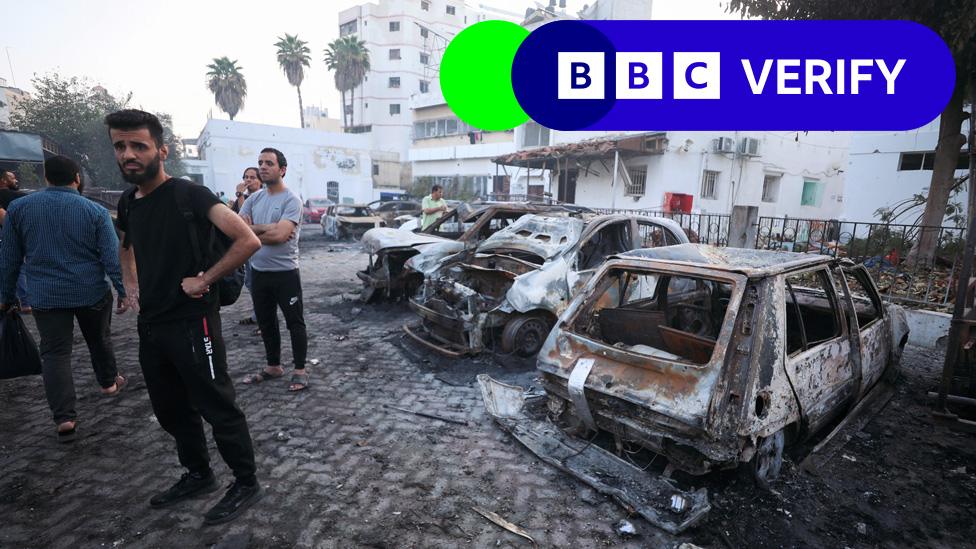Gaza hospital doctor speaks of moment missile hit
- Published
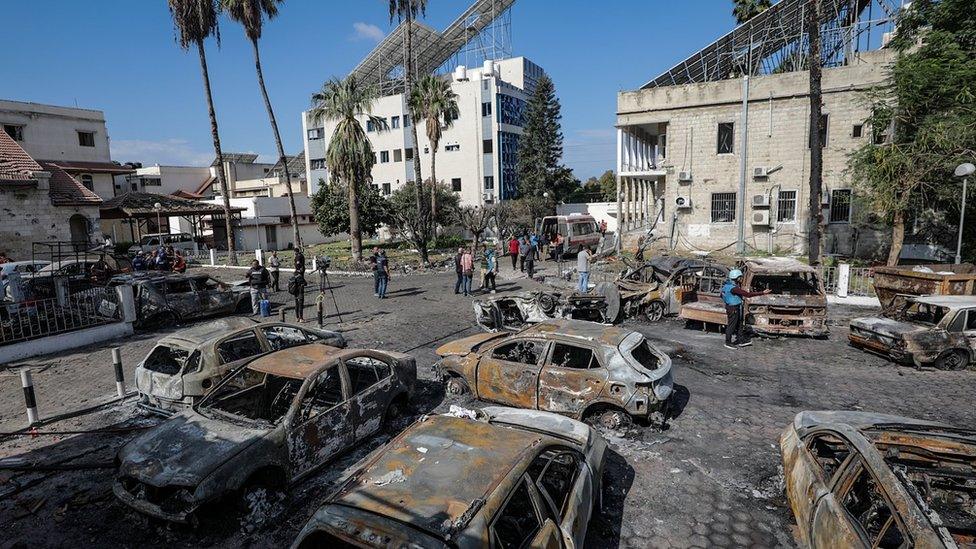
The scene at the Al Ahli Arab Hospital after the missile struck
A British-Palestinian surgeon who has been working to save lives in Gaza has returned to the UK after 43 days.
BBC London previously interviewed Prof Ghassan Abu-Sittah, from Médecins Sans Frontières, who has been helping to treat people wounded in the war, at the Al Ahli Arab Hospital.
As the interview concluded, on 17 October, the hospital was hit by a missile.
Now back in London, he has spoken of the moment the hospital was struck.
Pictures that emerged of the hospital show scenes of chaos, with bloodied and maimed casualties being rushed out on stretchers in the darkness. Bodies and wrecked vehicles can be seen in the rubble-strewn street outside.
Another doctor told the BBC that 80% of the hospital was taken out of service and estimated that as many as 1,000 people had been injured and many killed in the blast.
Hamas said the blast was caused by an Israeli airstrike. The Israeli military, however, said it was the result of a failed rocket launch by Palestinian Islamic Jihad - an accusation the militant group rejected.
On 23 October, Prime Minister Rishi Sunak told the Commons that the UK had judged that the blast at the hospital was likely to have been caused by "a missile, or part of one" fired from "within Gaza".
Prof Abu-Sittah described how parts of the hospital were on fire and the roof of an operating theatre fell in.
He told BBC London: "There was lots of dust, people were screaming and rushing past me. That's when I called your colleague back, not just to tell him - but I needed to my family to know - I was alive.
"It was just carnage in the emergency department; there was a man that had shrapnel in his neck. There were bodies and parts of bodies everywhere including that of the forearm of a young child on the floor."
Prof Abu-Sittah said across Gaza there were more than 7,000 wounded children who would need reconstructive surgery.
He said that of the 36 hospitals in Gaza, only nine were currently functioning and that "unless there is a real humanitarian corridor which allows lots of medical teams to increase the capacity, patients will die from wound infections".
"My biggest worry is that those who were fortunate enough to survive the initial attack will die from untreated wounds," he added.
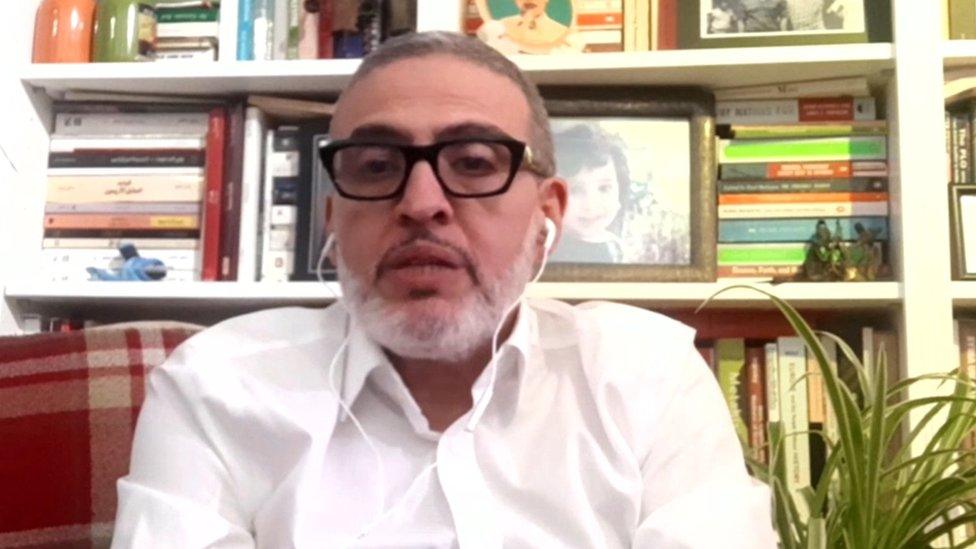
Prof Ghassan Abu-Sittah spoke to the BBC after returning to London
Asked about leaving Gaza, he said: "It's taken its toll on me physically and emotionally. I am also filled with this overwhelming sense of guilt towards the patients that still need my help and the kind of surgeries that I'm able to provide and that they might not otherwise get as there are not any other resources.
"I feel guilt for leaving my colleagues who I have left behind who are working in these extremely difficult circumstances."
The Al Ahli Arab Hospital is funded by the Anglican Diocese of Jerusalem, which says the facility is independent of any political factions in Gaza.
Israeli warplanes and artillery have been bombarding Gaza in response to the 7 October Hamas attack in which 1,400 people were killed and more than 200 others were kidnapped.

Listen to the best of BBC Radio London on Sounds and follow BBC London on Facebook, external, X, external and Instagram, external. Send your story ideas to hello.bbclondon@bbc.co.uk

More on Israel-Gaza war
Follow live: Latest updates
Explained: Who are the hostages released from Gaza?
Israel-Gaza briefing: When truce ends, the decisive next phase of war begins
History behind the story: The Israel-Palestinian conflict

Related topics
- Published18 October 2023
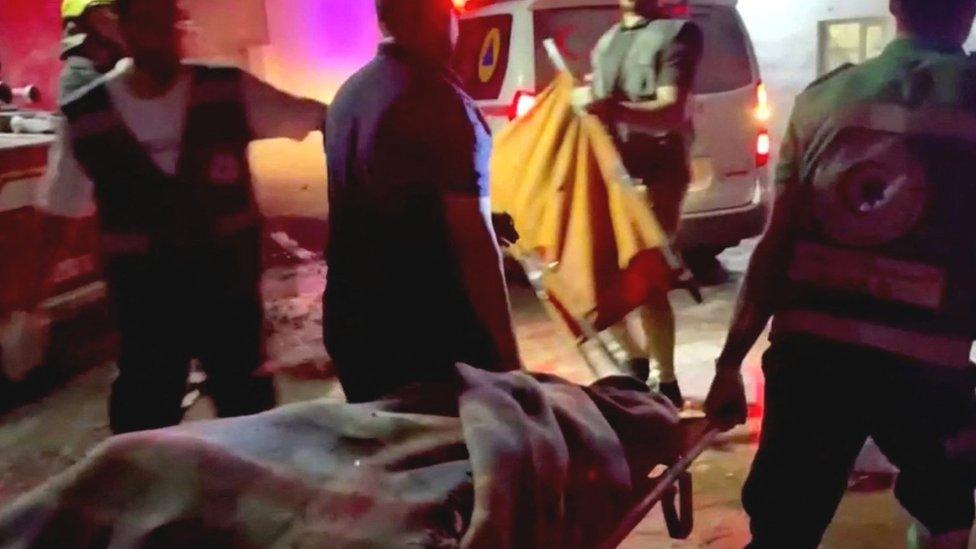
- Published23 October 2023
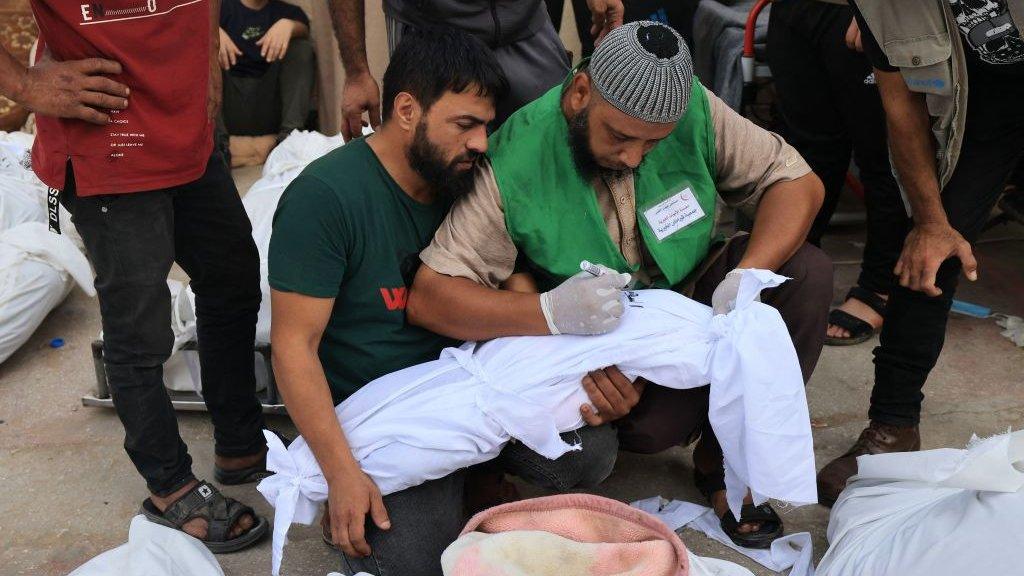
- Published19 October 2023
